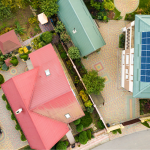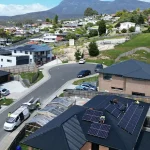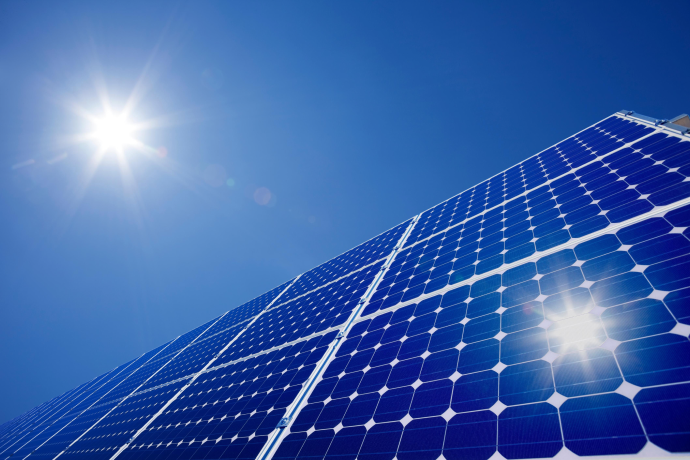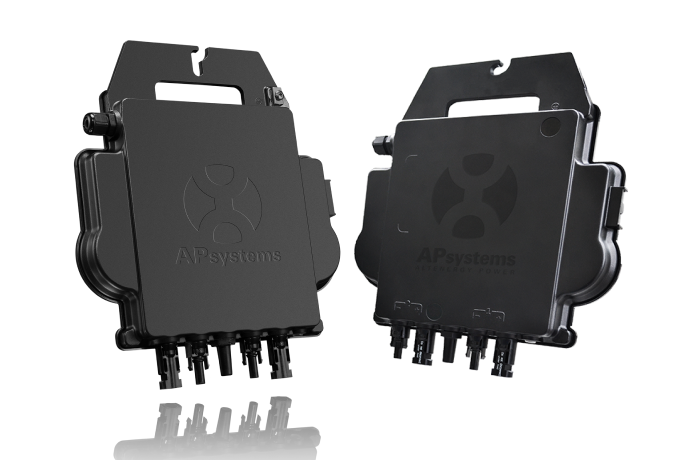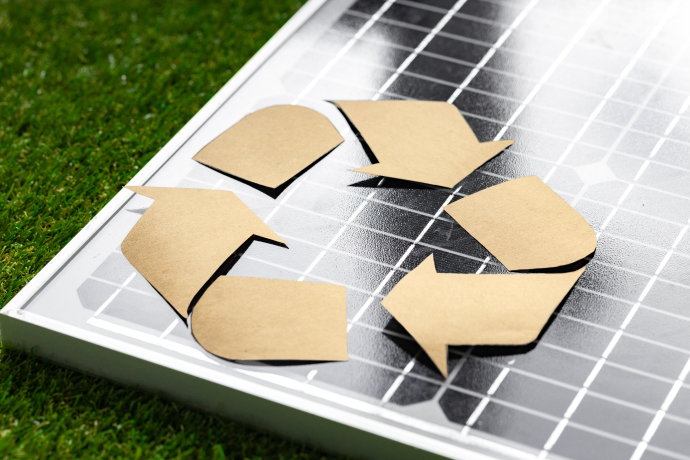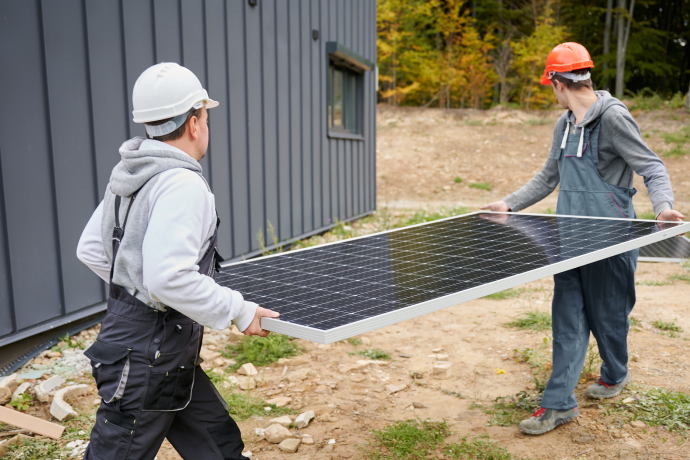In most cases yes, solar panels are worth the investment due to the long term savings to your wallet and the environment. Typically solar panel systems will pay back within 5 to 6 years but sometimes it can be as little as 4 years. For anyone considering investing in solar panels it is always a good idea to research and work out if they are worth it for your situation. To make that easier, we have a detailed outline of the costs, pros, cons and payback period, to help you decide if solar panels are worth the investment for you.
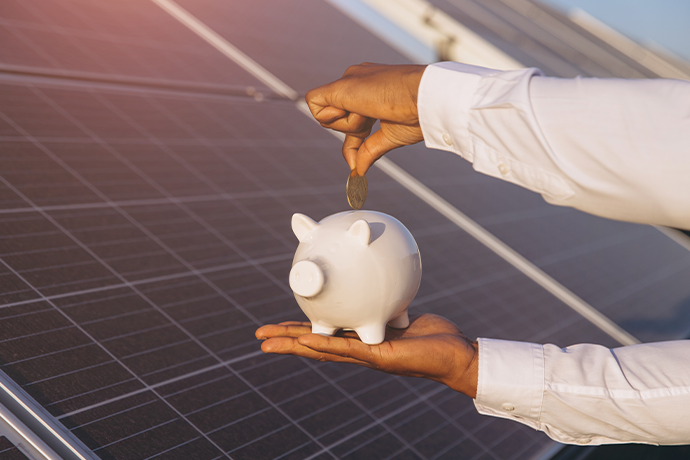
What Is Solar Power?
Solar power is the energy harvested from the sun to produce electricity. This is done through using solar photovoltaic panels, commonly known as solar panels. When the sun is shining it hits the solar panels which have been installed on a roof. The solar panels then convert the sunlight into DC electricity (direct current) through the photovoltaic effect. This is then fed into the inverter and converted to a usable energy called AC electricity (alternating current) which is sent to the electrical metre to be used to power devices and appliances in the home.
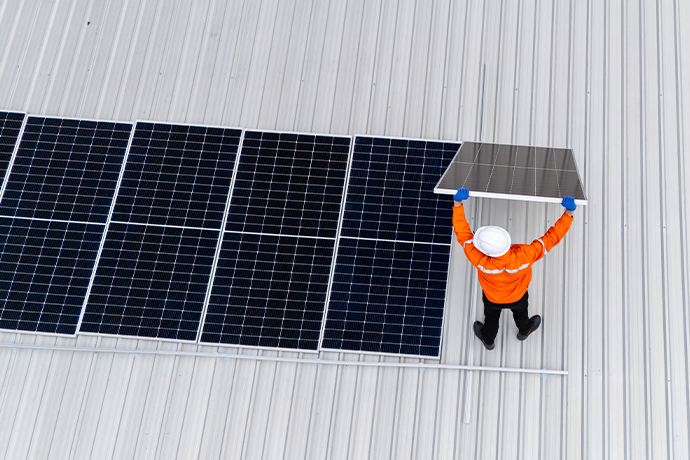
When Are Solar Panels Worth It?
Solar panels are worth it for most homeowners. They decrease power bills, help the environment, and increase property value. To work out if solar panels are worth it, consider these factors:
- Do you have high energy bills? If you have high energy bills, solar panels will save you money from the moment they are installed. The more money you spend on electricity, the more beneficial solar panels will be for cutting costs dramatically.
- Do you own your home? If you own your own home, installing solar panels can raise the value of the property by between 4 and 7% and help the home sell faster should you decide to put it on the market.
- Does your location have plenty of sunlight? While solar panels can work efficiently on cloudy days, ideally they do need sufficient sunlight to produce the maximum amount of energy. With this in mind, it is important to place solar panels in the least shaded area of a home’s roof as well for the highest sunlight exposure.
- Are there rebates available? If your state or country offers government incentives and rebates, it makes solar panel installation a more attractive option. Government rebates and feed-in tariffs in Australia can discount solar energy systems by 20 to 30%.
What Is The Average Cost of Solar Panels in Australia?
To determine if solar panels are worth it for you, first you need to understand the upfront costs of installing solar panels. In Australia, the average cost of solar panels for a 6.6kW system is between $6000 and $10,000 before any rebates. The cost depends on the size of the system and the location. Below is a comparison chart of average solar system costs for each state in Australia, potential rebates and final cost.
*This is just an estimate. Prices may vary.
| STATE | SYSTEM SIZE | COST | POTENTIAL REBATE | FINAL COST |
| Tasmania | 4kW
6.6kW 10kW |
$6249
$8745 $13,250 |
$1130
$1877 $2844 |
$5110
$6868 $10,406 |
| Victoria | 4kW
6.6kW 10kW |
$6068
$8415 $12,750 |
$1138
$1877 $2844 |
$4930
$6538 $9906 |
| NSW | 4kW
6.6kW 10kW |
$6132
$8554 $12,960 |
$1327
$2189 $3317 |
$4805
$6365 $9643 |
| SA | 4kW
6.6kW 10kW |
$6262
$8686 $13,160 |
$1327
$2189 $3317 |
$4885
$6497 $9843 |
| WA | 4kW
6.6kW 10kW |
$6096
$8494 $12,870 |
$1327
$2189 $3317 |
$4769
$6305 $9553 |
| QLD | 4kW
6.6kW 10kW |
$6120
$8567 $12,980 |
$1327
$2189 $3317 |
$4793
$6378 $9663 |
| NT | 4kW
6.6kW 10kW |
$9284
$13,754 $20,840 |
$1475
$2433 $3686 |
$7809
$11,321 $17,154 |
Variables That Determine Solar Panel Cost
The final cost of solar panels depends on a number of factors including location, solar installers, the size of the system, types of solar panels, household energy consumption, and rebates. We examine each of these in detail to help you understand the variables that determine solar panel cost.
- System size: The size of the system will obviously impact solar panel cost. A larger system has more panels and will take longer to install so will be more expensive than a smaller system. In saying that, it is important to install the right sized system for your home. The right sized system will depend on your energy bills and how much you are prepared to spend.
- Location: Where you are located plays a role in installation costs. Different areas charge different prices for labour and permits. Individual states also have different rebates and incentives that can impact the price of the solar panels.
- Household energy consumption: The energy consumption in the household will play a big part in the type and size system you require. If you have only two people living in the home who work most of the time they will use less energy than a family of 5 who are home most days.
- Types of solar panels: There are all different types of solar panels and some are more costly than others. High efficiency panels, for example, have a higher upfront cost than standard solar panels.
- Solar installers: Solar installers can vary dramatically with their quotes so the installer you choose will have an impact on the cost. However, while there are some cheap quotes out there, it is important to make sure you hire an accredited installer and avoid the regret of taking the cheapest quote which ends up costing more in the long run.
- Solar rebates and incentives: The amount of solar rebate available will have an impact on the cost of solar panels. As a rule, most rebates and incentives will reduce the total cost by about 25%.
- Solar batteries: The addition of a solar battery will increase the cost of the system significantly but will also allow you to use all of the electricity your system produces in the evening and when there is no sunlight. A solar battery typically costs between $10,000 and $20,000.
How To Calculate Potential Solar Savings
Solar panels can save you a significant amount of money in the long run. The average solar system for residential is 6.6kw and can save you between $1500 and $2500 annually. In order to determine how much money you can save with solar panels, it is a matter of following these steps.
- Determine current energy usage: To determine your current energy usage, look at your electricity bill for the ‘average daily use’ in kWh. This is the total amount of electricity you have consumed divided by the number of days in the billing period. Most homes use between 11 and 25kWh per day. If you have a smart metre, the data will be more accurate as it records the home’s electricity usage every hour. You can read the smart metre data by logging into your electricity provider website or app and going to the usage screen.
- Estimate future energy usage: Calculate if your energy usage will increase or decrease in the future. This will be determined by your lifestyle and stage of life. Households with older children will likely use less energy as the years go on as it is likely the children will eventually move out. In comparison, a young couple will likely increase their energy usage should children come along or they decide to upgrade their home with a swimming pool or hvac system which all use more power.
- Calculate the size of the solar system: By considering your current and future energy usage figures, you can calculate the size of the solar system you will need. As a rule, most average sized homes require a solar system between 5kW and 7kW to provide a good balance of energy production and costs. A home with moderate consumption and three or four people living there will probably need a 6.6kW system, while if you plan on adding an electric vehicle to the home, a new hvac system, pool and expanding the family, you might want to consider a 10kW system. It is always wise to contact a reputable solar system retailer to determine the best size for your needs.
- Calculate cost of solar system: Once you know the size of solar system you need, you can get an estimate of how much it will cost to supply and install. On average solar systems will cost between $6000 and $10,000 for an average sized home.
- Calculate savings: To calculate how much you will save by installing a solar system, you need to take into account the cost of the solar system minus the rebate available, current electricity usage, and potential electricity available from the solar system. For example, if you purchase a 6.6kW system, after the rebate it may cost $6868. If your current electricity consumption is 8000kW per year and your bills per year for electricity are $3200, the right sized solar system will produce 75% of your electricity requirement within the first 12 months. This will mean you are only buying 25% from the grid at a cost of $800. In the first year, you will have already saved $2700 on electricity.
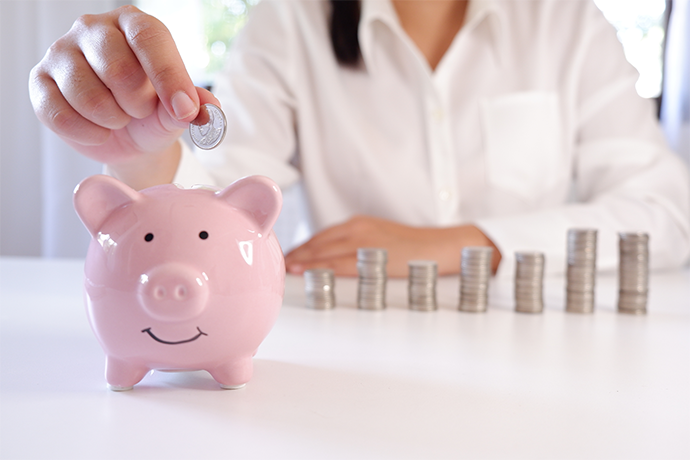
Pros and Cons Of Switching To Solar
While switching to solar is worth it in the majority of cases, it is important to look at all the pros and cons to determine if it is a good investment for you.
Pros
- Reduces carbon footprint: As a renewable energy source, solar energy will never be used up. It creates no carbon footprint or other greenhouse gases from heat trapping. There is no damage from mining or drilling like with fossil fuels. It doesn’t even use the water on the planet.
- Saves money on bills: Electricity bills are reduced dramatically with solar power. You are no longer having to buy electricity from the grid, but producing it yourself with a solar system on your roof. This means not paying for electricity or, at the very least, paying for less from the grid.
- Lifts house value: Installing solar panels immediately raises the value of your home, in a similar way that adding a pool or extension would.
Cons
- Upfront investment: While you do enjoy significant savings after having solar panels installed, there is often a high initial investment upfront, but this can be offset with low cost financing options. It’s important to note that not all solar installation companies provide low or no cost payment plans, so make sure you’re informed before making a selection.
- Requires sunlight: While solar panels do work on cloudy days, they also need some sunlight. If you are in a particularly dark or cloudy area, or your roof is completely shaded, solar panels may not be a good option.
Going solar is almost always worth it when it comes to saving money and the environment, and even raises property values. However, switching to solar may not be right for everyone so it is important to determine whether it is worth the investment for you. Our article explains everything you need to know about solar panels, how much they cost, rebates, and how to determine if solar panels are worth it.
For further information the experts at Tasmanian Safer Solar are here to help.

